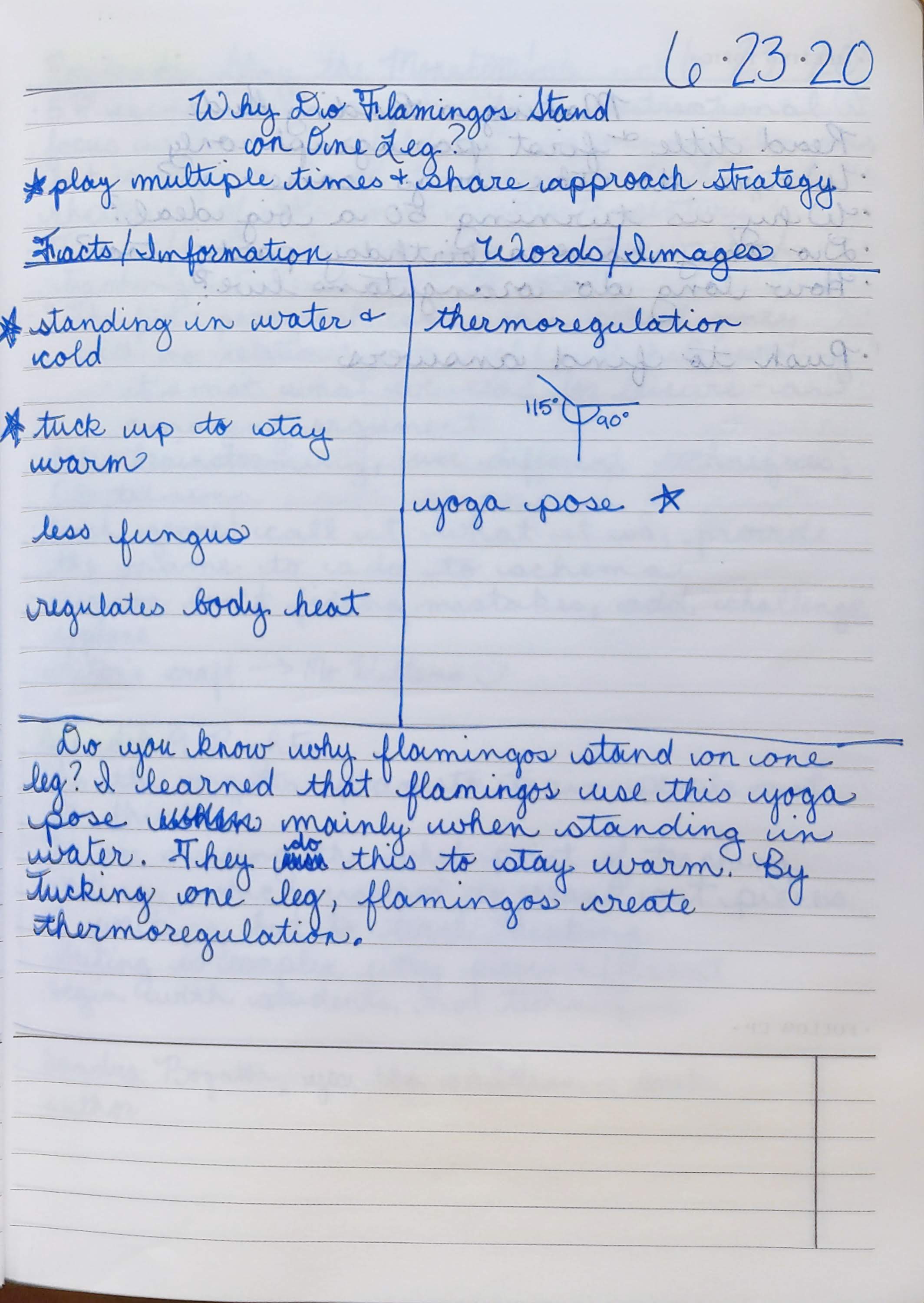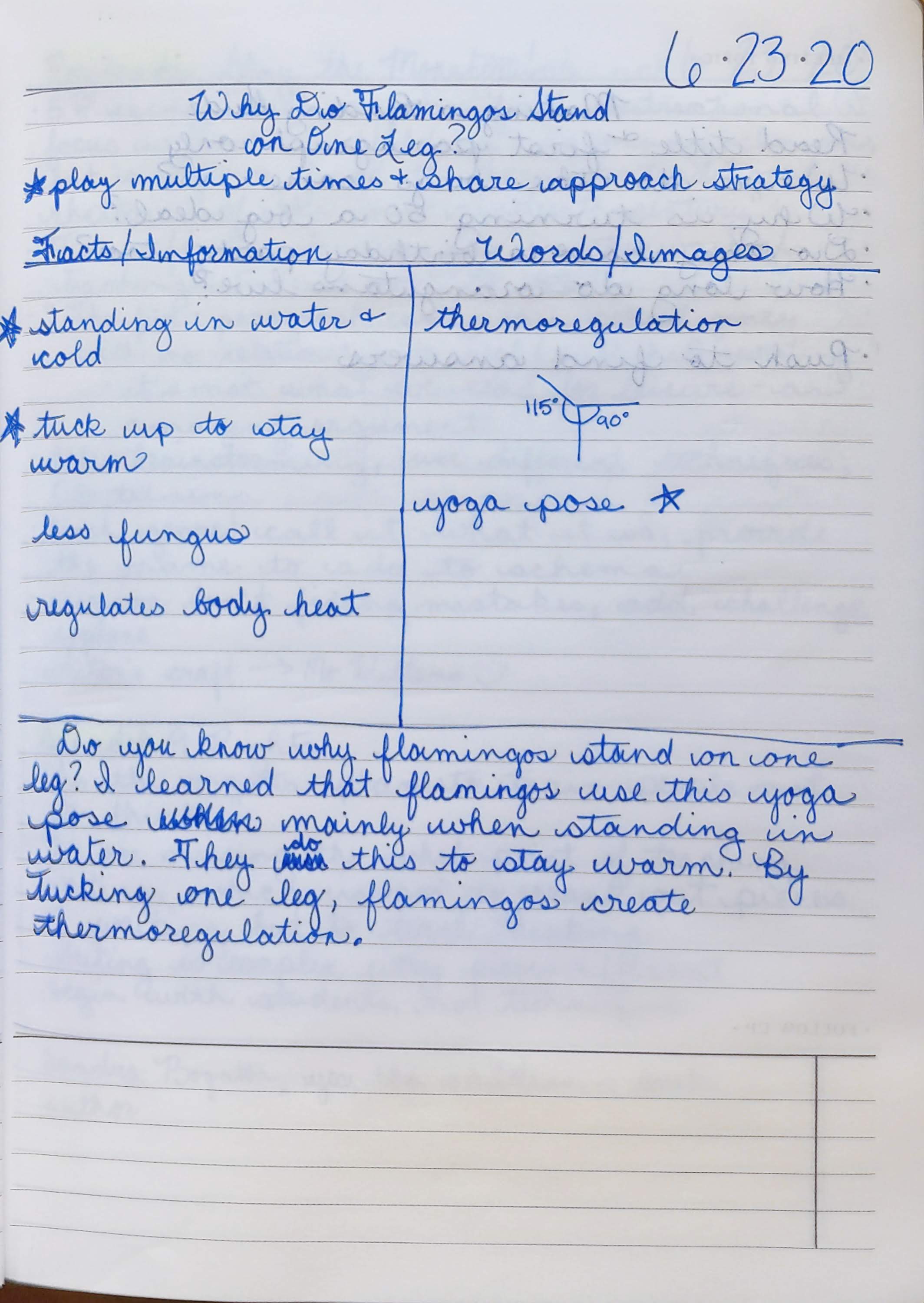Feeling Empowered to Steal: Thank You, Austin Kleon.

One of our earliest reads in the OWP four week course was an except from Austin Kleon's Steal Like an Artist. He points out that, "Nothing is original." This is followed up by many quotes from artists talking about how they are inspired by other artists. They take what they like and move beyond, to the next level. I have actually learned that teacher are wonderful at stealing, but since we're expected to be examples of high moral standards, we call this collaboration. Here are the things I have "stolen" and pushed to the next level.
Sticky Note Debates and Word Association, Inspired by Kristin Hock
Instead of coming up with a topic to debate or writing an opinion on the debate, my students will indicate which side of the debate they are supporting by using sticky notes. Also, when exploring new vocabulary words, we will use sticky notes to group words with similar meanings.
The Importance of Document Cameras, Inspired by Meredith Parris
Meredith showed us how to write one topic in three different ways. My Kindergarten kids will definitely explore the ideas of narrative, argument, and informational text, but we will not be tackling that in one lesson. However, my take away from Meredith is that I need to use my document camera more. My kids sit at the carpet and watch me plan, instead of engaging in the planning with me. My students need my guided practice and I need to expose them to the entire writing process.
Slowing Down a Moment, Inspired by Beth Rimer
Although Beth guided us through slowing down our own moment and making the small seem big, she really reminded me that I can't teach a Kindergarten class about narrative, but I can ask them to tell me a story. I wrote down in my notebook, "Teach it small, not huge." I do not want to be driven by the end goal. I want to build the smaller pieces into a final product. She even used nesting boxes to expand out a single idea into a story. I want to use this with my kids.
T-I Charts, Inspired by Rachel Howard
Rachel shared Reading with Questions in Mind, and had us make T charts. One side of the chart was for facts and information, while the other side was for words and images. I immediately knew I wanted to use this! Each student could have a sticky note to write a word or draw a picture on from the video. We could add these to a class chart to review the information learned. That's when the magic happens! The T becomes an I when you add the bottom line. That's where we can create a class response, or as the year continues, students can write their own response.

The Awesomeness of Flow Charts, Inspired by Jacob Dodds
Jacob asks his students to determine if aliens exist through looking at different source material online. I want to be in his fourth grade classroom! Anyway, he created this amazing flow chart to help his students assess articles. That got me thinking, I can create a flow chart for my students to follow to check their writing. Do you have a character? Yes or no. Do you have a setting? Yes or no. Is there a problem? Yes or no. Is there a solution? Yes or no. I think the kids would like this and it would represent writing as a cyclical process, not linear!
Key Word Outlines, Inspired by Crystal DeYoung
I have a terrible memory. I have to write everything down or it will disappear. Crystal highlighted how to briefly outline an article. She even used drawings instead of words, which is what I would use in Kindergarten. Then, she had us practice retelling the story. I was so inspired that this could help my students with retell and they could record audio on Padlet!
Launching Our Writing, Inspired by Theresa Strong
Theresa walked us through so many ways to generate writing ideas. They were all so simple and already prepared for my Kindergarten writers. We used pictures to create a heart map. We thought of things we can do in a body map. We shared what we know and like in our idea light bulbs. We made collages to share about ourselves. These are all amazingly simple ways to launch all grade levels into writing.
Learning Grammar Through Writing, Inspired by Tori Herrera and Amy Geiger
Both Tori and Amy asked us to analyze text as a model for our own writing. These lessons encouraged me to be more intentional with grammar "noticings" in my classroom. For instance, "Did you hear how the author described..." or "What did you notice about that part?" This will give my students a foundation in grammar while showcasing the talents of writers.
Using Art to Spark Writing and Discussion, Inspired by Debbe Hermane
Debbe had us analyze artwork using "See, Think, Wonder." It's one of my favorite thing to do in my classroom. You never know what Kindergartners will say! Debbe's lesson made me realize that I ask my students to draw a story or tell the story from a wordless picture book, but I never have them look at a picture and tell me what they see. I want to do this with my students this year.
Dialogue, Inspired by Deb Covey
In Deb's demonstration, we were encourage to choose four people in history and write a dialogue between them. I put together my own dream team including, Queen Elizabeth I, Queen Elizabeth II, Michelle Obama, and, of course, Eleanor Roosevelt. I started a fiction story where the four of them have to save the world, and I honestly believe that if we could get the all together, they could. This led me to think about some of our favorite characters in Kindergarten, mostly Mo Willems characters, and what it would be like to have the class write a dialogue between characters from different books. We could do it as a class.
This list will continue to grow and grow as I continue on my OWP journey.
Bibliography
Kleon, Austin. The Steal like an Artist Journal : A Notebook for Creative Kleptomaniacs. New York, Workman Publishing Co., Inc, 2015.
Hock, Kristin. "Learning through Writing." Ohio Writing Project 41st Annual Workshop on the Teaching of Writing. June 17, 2020.
Parris, Meredith. "One Topic Three Ways." Ohio Writing Project 41st Annual Workshop on the Teaching of Writing. June 18, 2020.
Rimer, Beth. "Slowing Down a Moment." Ohio Writing Project 41st Annual Workshop on the Teaching of Writing. June 22, 2020.
Howard, Rachel. "Reading with Questions in Mind." Ohio Writing Project 41st Annual Workshop on the Teaching of Writing. June 23, 2020.
Dodds, Jacob. "Searching for the Truth: Examining Source Material." Ohio Writing Project 41st Annual Workshop on the Teaching of Writing. June 26, 2020.
DeYoung, Crystal. "Keyword Outlines." Ohio Writing Project 41st Annual Workshop on the Teaching of Writing. June 29, 2020.
Strong, Theresa. "Launching Our Writing: Discovering the Writer Inside of You." Ohio Writing Project 41st Annual Workshop on the Teaching of Writing. June 30, 2020.
Herrera, Tori. "Learning Grammar through Mentor Sentences." Ohio Writing Project 41st Annual Workshop on the Teaching of Writing. July 1, 2020.
Geiger, Amy. "Creating a Grammar Routine in Your Classroom." Ohio Writing Project 41st Annual Workshop on the Teaching of Writing. July 7, 2020.
Hermane, Debbe. "Using Art to Spark Writing and Discussion." Ohio Writing Project 41st Annual Workshop on the Teaching of Writing. July 2, 2020.
Covey, Deb. "Dialogue." Ohio Writing Project 41st Annual Workshop on the Teaching of Writing. July 6, 2020.
